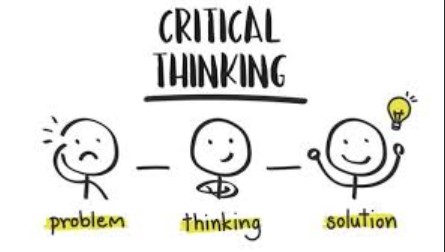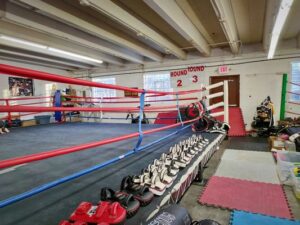Critical thinking is often described as the backbone of academic success. Yet, many students struggle to define what it truly entails, let alone practice it effectively. If you’re one of those students, don’t worry, you’re not alone.
Developing critical thinking skills is a journey, and mastering it can significantly enhance the quality of your coursework.
Let’s learn the practical strategies to cultivate this essential skill and elevate your academic performance.
What Is Critical Thinking and Why Does It Matter?
Critical thinking is the ability to analyze, evaluate, and interpret information in a disciplined and reflective way. It’s about questioning assumptions, identifying patterns, and making reasoned judgments instead of merely accepting information at face value. For students, it’s not just a theoretical concept, critical thinking directly impacts coursework quality by helping you:
- Develop well-supported arguments.
- Solve complex problems.
- Understand and synthesize diverse perspectives.
- Write more compelling essays and reports.
Imagine this: You’re working on a research paper, and instead of simply regurgitating facts, you critically assess the sources, connect ideas, and present an original viewpoint. That’s critical thinking in action, and it’s a skill that professors and employers alike deeply value.
8 Tips For Students To Develop Critical Thinking Skills
1. Master the Art of Asking Questions
Be Curious, Not Passive
At the heart of critical thinking lies curiosity. To enhance your coursework quality, you need to question everything, from the validity of a theory to the implications of an argument. Begin by practicing the “5 Ws and 1 H” approach:
- Who is the author or source of this information? Are they credible?
- What is the main argument or evidence?
- Where does this information come from?
- When was it published? Is it still relevant?
- Why is this perspective important?
- How does this idea connect to your coursework?
For example, if you’re writing an essay on climate change, don’t just cite statistics. Ask deeper questions about the methodologies behind those statistics and their broader implications. This practice not only sharpens your critical lens but also enriches your coursework with depth and nuance.
2. Strengthen Your Analytical Skills
Break It Down to Build It Up
Analysis is a cornerstone of critical thinking. When faced with a complex topic, break it into smaller components. Let’s say you’re studying a literary text for an English assignment. Instead of summarizing the plot, dig deeper:
- Analyze the motivations of the characters.
- Examine the themes and symbols used by the author.
- Explore the historical or cultural context.
By dissecting each element, you’ll uncover layers of meaning that most students overlook. This attention to detail not only impresses your professors but also sets your coursework apart.
Visual tools like mind maps or flowcharts can help you organize your thoughts and identify connections between ideas.
3. Develop a Skeptical Mindset
Don’t Believe Everything You Read
In an age of information overload, it’s easy to fall prey to unreliable sources. To develop critical thinking, approach every piece of information with a healthy dose of skepticism. Here’s how:
- Verify Sources: Check the credibility of the author and publisher.
- Look for Bias: Consider whether the source has an agenda.
- Cross-Reference: Compare information across multiple sources to ensure accuracy.
For coursework, this means citing peer-reviewed journals and academic databases instead of relying on questionable websites. Not only does this elevate your credibility, but it also strengthens your arguments.
4. Practice Open-Mindedness
Embrace Diverse Perspectives
True critical thinkers are open to new ideas and opposing viewpoints. When working on group projects or essays, challenge yourself to consider perspectives that differ from your own. This doesn’t mean abandoning your stance; rather, it’s about engaging in constructive dialogue and understanding the bigger picture.
For instance, if you’re debating a controversial topic like artificial intelligence, explore its ethical implications from both optimistic and cautious perspectives. Incorporating these nuanced insights will enrich your coursework and demonstrate intellectual maturity.
5. Hone Your Problem-Solving Abilities
Think Creatively, Act Strategically
Critical thinking isn’t just about identifying problems, it’s about solving them effectively. To enhance your coursework, apply these problem-solving strategies:
- Define the Problem: Be clear about what you’re trying to solve.
- Brainstorm Solutions: Don’t limit yourself to conventional ideas.
- Evaluate Pros and Cons: Assess the feasibility and impact of each solution.
- Implement and Reflect: Act on the best option and analyze the results.
This approach is particularly useful for coursework in STEM fields, where logical reasoning and innovation go hand in hand.
6. Engage in Reflective Thinking
Learn from Experience
Reflection is a powerful tool for self-improvement. After completing a coursework assignment, take the time to:
- Analyze what worked well and what didn’t.
- Identify areas for improvement.
- Consider how you’d approach a similar task differently in the future.
Reflection not only helps you grow as a student but also reinforces your critical thinking abilities over time.
Did You Know? Reflective journaling is an excellent way to track your progress and gain deeper insights into your learning process.
7. Use Expert Guidance
Seek Help When Needed
Sometimes, enhancing your critical thinking skills requires external support. Whether it’s consulting your professors, collaborating with peers, or utilizing professional coursework writing services like Global Writing Solutions, don’t hesitate to seek guidance.
For students struggling with tight deadlines or complex topics, services like coursework writing assistance can provide invaluable support while you continue developing your skills.
8. Cultivate a Habit of Reading Widely
Expand Your Horizons
Reading is a gateway to critical thinking. By exposing yourself to diverse genres, authors, and disciplines, you’ll naturally develop a more nuanced understanding of the world. Aim to:
- Read academic journals and books related to your field.
- Explore articles that challenge your existing beliefs.
- Engage with thought-provoking literature and essays.
The broader your reading habits, the more informed and compelling your coursework will become.
The Path to Excellence
Critical thinking isn’t a skill you develop overnight. It requires consistent practice, a willingness to question the status quo, and an openness to learning from every experience. By mastering these strategies, you’ll not only enhance the quality of your coursework but also lay a strong foundation for lifelong learning and success.
Remember, the journey to becoming a critical thinker is unique for every student. Take it one step at a time, and don’t forget to celebrate your progress along the way. With dedication and effort, you’ll soon transform your academic performance and stand out in any classroom or professional setting.






